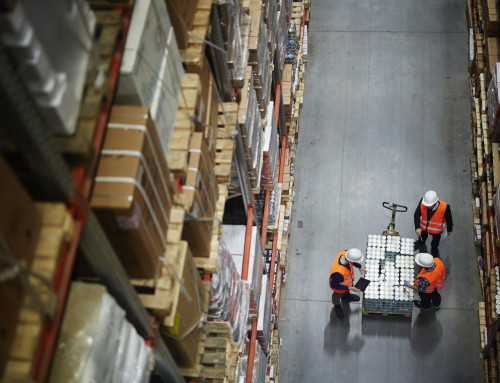On-demand warehousing is often compared to Airbnb, but a few key features set them apart.
“Airbnb for warehousing” is a phrase so commonly used that it pops up as a search option in Google. And there are without question many key similarities between on-demand warehousing and the popular platform to find short-term places to stay. Both let users access unused space; both introduced a concept that filled a void in the marketplace; and both create a customized experience that the parties perceive as a win-win.
In reality, the analogy is more complex. Although it rolls easily off the tongue and conjures up images of a free-flowing exchange, Airbnb for warehousing does not fully capture what on-demand warehousing means or how it helps businesses leverage warehouse space as a competitive tool.
Airbnb for warehousing is not really like booking a vacation rental online. Here’s why:
It’s not just about saving money.
Other than finding a unique place to stay, people also hope to save money when they use Airbnb. Why pay $400 for a hotel room in an attractive downtown location when a more personalized space is available for $150 in the same neighborhood?
The same goes for other on-demand services like Uber. It’s a free-form contract to use the asset of someone else. No one orders an Uber or rents a vacation home to make money — saving money is the end game.
That concept is also an integral part of on-demand warehousing, but there’s an important distinction: Airbnb for warehousing is so much more than finding unused warehouse space at a great price. A logistics and supply chain expert at JLL put it like this:
“Because customers today demand such fast delivery when they order online, companies need more smaller locations rather than fewer larger locations…The ‘Airbnb model for industrial warehousing space’ allows companies to be nimble enough to respond to seasonal changes and compete in the age of e-commerce.”
In other words, on-demand warehousing lets companies build flexibility into their supply chains. A diverse portfolio of warehousing solutions, in turn, lends a competitive edge that serves to make money as the business grows.
It’s B2B, not B2C or C2C.
Airbnb, in its original form, typically took place between two private individuals. As the platform has grown and more established rental businesses have entered the marketplace, it still remains exclusively directed toward consumers. Airbnb for warehousing, by contrast, is always B2B, a fact that inevitably means transactions are more complex in both legal and practical terms.
Unlike the vacation rentals, on-demand warehousing is not primarily about access to facilities. Rather, it’s about gaining access to the full scope of third-party fulfillment services, equipment, and technology that a warehouse partner offers. On-demand warehousing allows companies to focus on their core business and not concern themselves with operating and managing a warehouse, including all of its associated challenges, like tight labor markets and high fixed costs.
And, unlike the vacation renter who can pack up and leave for a hotel if the rental does not live up to the expectations, businesses can hardly afford such a flippant approach to warehousing — which raises the stakes for finding the right on-demand marketplace online.
It’s on a whole different scale.
While the cost for an Airbnb rental rarely exceeds three digits, the amount of money that businesses spend on warehousing speaks to the complexity of the undertaking. A month of on-demand warehouse space ranges anywhere from $2,000 to $100,000, depending on the size, location, and services required in the project.
With warehouse vacancy rates at historic lows — numbering, for instance, at only 1.4% in the Los Angeles area, according to JLL research — on-demand warehousing has opened up a previously untapped portion of warehouse space for short-term contracts. Now identified as an opportunity, startups are flocking to take advantage of the 4 billion square feet of unused space that Warehowz analysis and Legg Mason data shows is available within inside existing U.S. warehouses.
In summary, Airbnb for warehousing is indeed more complex than its on-demand counterpart for vacation homes. But based on the millions of dollars in investments pouring into on-demand warehousing startups — between $60 million to $100 million in 2019 alone — it also offers a great deal of promise for the future.

Read more:



